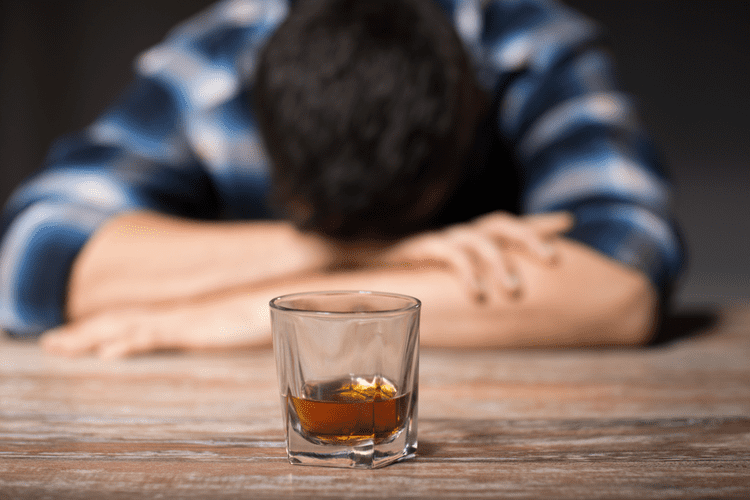What Happens When You Drink Alcohol While Sick
It can also lead to irritation of the lining of the stomach, called gastritis. If you experience these symptoms along with regular night sweats, you may be going through alcohol withdrawal. If you have night sweats along with some of the following Top 5 Questions to Ask Yourself When Choosing Sober House symptoms, it could be a sign that you’re going through alcohol withdrawal. However, a more serious cause of night sweats is alcohol consumption. It can happen if you have an alcohol use disorder, binge drink, or even if you’ve only had one drink.
Why do alcoholics sleep so much?
Alcohol may aid with sleep onset due to its sedative properties, allowing you to fall asleep more quickly. However, people who drink before bed often experience disruptions later in their sleep cycle as liver enzymes metabolize alcohol. This can lead to excessive daytime sleepiness and other issues the following day.
Having a mild intolerance to alcohol or something else in alcoholic beverages might not require a trip to a doctor. Simply avoid alcohol, limit how much you drink or avoid certain types of alcoholic beverages. Alcohol intolerance is caused by a genetic condition in which the body can’t break down alcohol efficiently.
How is alcohol intolerance diagnosed?
While everyone might sweat due to a hot room or too many blankets, people with night sweats may perspire excessively for a reason they can’t define. Even if they’re sleeping in a cold room, they may awaken feeling flushed, hot and sweaty. This isn’t the only bad thing about drinking alcohol in the cold. Have you ever had a glass of wine in the wintertime, some whiskey around a campfire, or a few beers at a tailgate and noticed how the alcohol makes you feel warm? This seemingly warm and fuzzy feeling has a scientific explanation, but it’s to be regarded carefully because it’s actually doing the opposite of “warming” your system.
Can you sweat out a hangover?
While exercising with alcohol still in your system, your body may sweat more than usual. However, dietitians insist sweating out alcohol will not help your hangover. It may even worsen it. As alcohol triggers the kidneys to produce more urine, this reduces the number of fluids your body has.
The heat can increase depending on how quickly you’re drinking and how much. If you only have one drink in an hour, your body can break down that alcohol amount easily enough. If you’re having multiple drinks an hour, your liver will need to put in some serious effort to metabolise the alcohol, giving off more and more heat.
Online Learning Courses
Over time, it causes heart muscles to droop and stretch, like an old rubber band. Your heart can’t pump blood as well, and that impacts every part of your body. Your brain helps your body stay well-hydrated by producing a hormone that keeps your kidneys from making too much urine. But when alcohol swings into action, it tells your brain to hold off on making that hormone.
If they’re caused by alcohol, they could stay with you as long as you keep drinking. However, that feeling of warmth radiating from your skin is a signal that blood is being diverted from your core, and an indication that your body temperature may actually be lowering. But if heavy sweating is accompanied by fever, rapid heartbeat, confusion, or even hallucinations, one should seek medical assistance.
Makes your symptoms worse
Millions of people around the world deal with an alcohol flushing reaction, or an alcohol intolerance. The most noticeable symptoms of this condition is feeling hot and flushed when you drink alcohol. Alcohol affects your nervous system, causing a fluctuation in blood pressure, heart rate, and body temperature. Night sweats could be a result of alcohol withdrawal, or alcohol intolerance.
One study of alcohol’s effects on body temperature showed that sweating and the sensation of heat increased significantly 10 minutes after consuming alcohol. Body temperature, however, dropped 20 minutes after the sweating began. Delirium tremens (DT) is the most severe form of alcohol withdrawal. It can cause severe sweating, fever, hallucinations, and seizures. This is a life threatening event requiring immediate medical care.
The feeling of warmth may actually mask a drop in body temperature, and sweating makes you more likely to catch a chill. In extreme cases, some people have actually died from hypothermia after spending too much time in cold weather while drunk. Like hangover symptoms, hot flashes and sweating from AWS occur because alcohol withdrawal triggers your fight-or-flight response. Usually, alcohol has a calming impact on your brain, making your brain highly sensitive to glutamate, a chemical that excites your brain. Without alcohol in your system, your brain can become over-excited quickly.

About five percent of the alcohol consumed leaves the body through urine, sweat glands, and breathing. Most of the alcohol must be broken down (metabolized) by the liver to remove it from the system. The liver metabolizes alcohol at a very constant rate, approximately one drink per hour.
It’s hot.
We all know that excessive alcohol consumption can lead to dizziness, nausea and headaches. But alcohol can also influence your core body temperature, blood pressure and overall skin temperature. This can lead you to feeling flush, hot and sweaty after just a few drinks. If you’re interested in reducing the effects of excessive drinking, check out Asian flush pills. People who take certain medications that alter alcohol metabolism can also experience the alcohol flush reaction. Such medications include those used to treat diabetes, high cholesterol, and infections.

